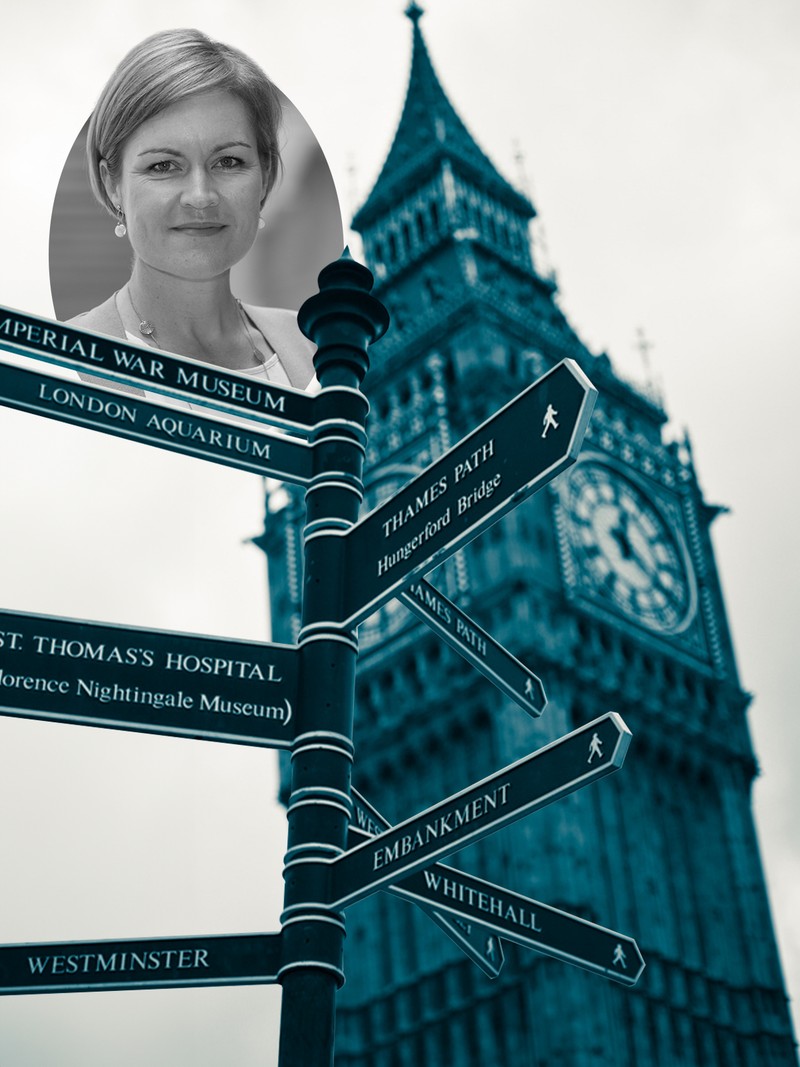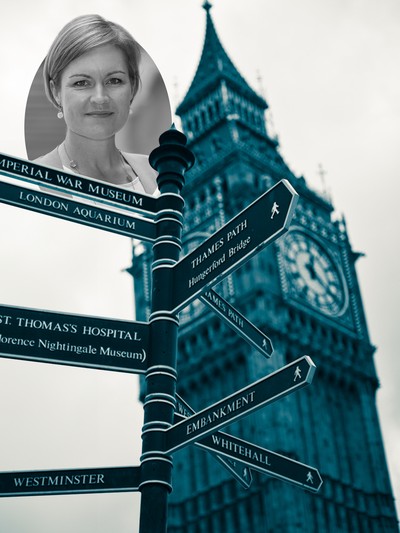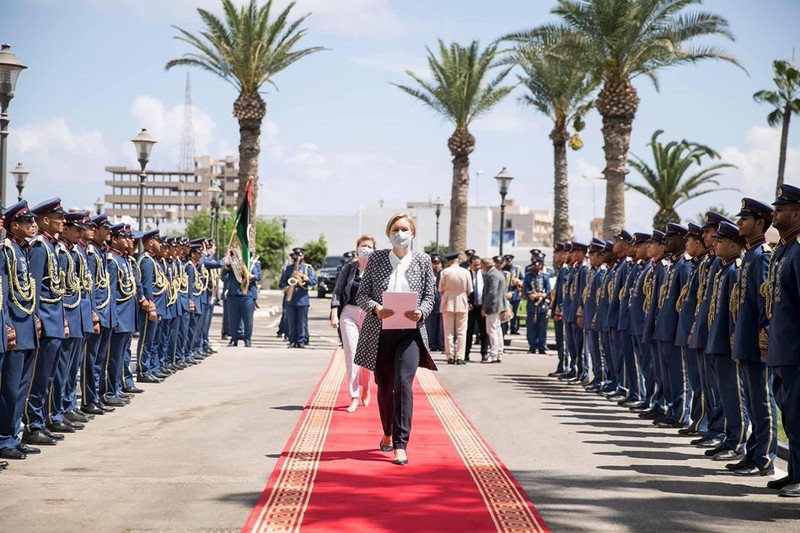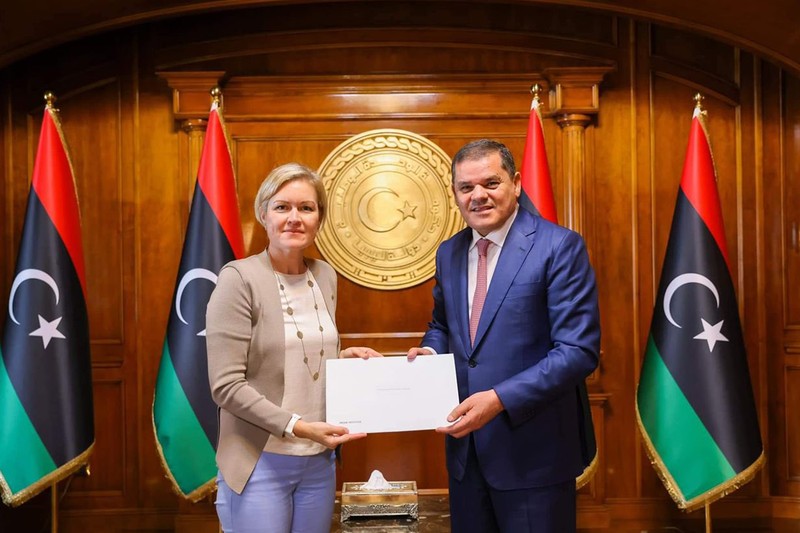

My Life In The Foreign Office: Caroline Hurndall
I love the outdoors and I'm quite scientifically minded, so I applied to get into veterinary school, but I didn't get in. I had to have a bit of a rethink. I took two years out and worked for a youth charity providing medical care in the Philippines, then spent a bit of time in Australia. I still didn't really know what I wanted to do after that, so I went to study natural sciences at Durham. It wasn't until the end of university that I decided to give the Foreign Office a go.
It was only in applying to the Foreign Office that I found out what it did. It took me four attempts to get in because it’s really competitive. You’re recruited as a generalist, but they look for core skills like communication and leadership. Then they place you for your first job and you start working your way up through the grades, spending a certain amount of time at each one. After a few years as a desk officer in London, you go and do a posting overseas.
During my first job, I worked on conflict issues and UN peacekeeping. I was working with our team in New York, negotiating the mandates for those peacekeeping missions. I discovered that was a niche I loved, so national security has been a thread throughout my career ever since.
My first full posting at the start of 2008 was to Afghanistan. I went to do political military liaison work there – for the last six months, I worked as a political advisor to the US Marines when they deployed to Helmand. It was my first time sitting in a big meeting room, surrounded by quite intimidating, battle-hardened colonels but I remember thinking, “If I don't stick my hand up and say something, no one will. I'm the only one in the room who can do this.”
Afghanistan was a steep learning curve, but a brilliant experience. It was tough – you’re working seven days a week, most hours of the day. Afterwards, I came back to London and worked in our press office for a year and then got promoted again to be a team leader. At that level, I did a job in London working on Sudan. Then I went overseas to Washington and worked in our embassy there covering the Middle East portfolio. I ran a small team, liaising with the White House, Congress and the State Department. It was my job to represent UK policy and report back to London on US views. After that, I took the next jump up and went into the Senior Civil Service – it’s the step you need to make if you want to move into a leadership role. I eventually headed up what became the Iran unit.
After that, I was encouraged to apply for the job of ambassador to Libya by the permanent undersecretary at the time, Simon MacDonald. He had a very specific goal to increase the number of women in ambassador positions around the world, so really encouraged me to be ambitious and put myself forward for roles.
I’ve been very lucky to have some key mentors throughout my career. During my job on peacekeeping, I worked with the most incredible woman called Dame Margaret Anstee. She was the first female head of a peacekeeping mission and was helping teach a course we were running in Eastern Europe. She was the one who told me not to be afraid of being a woman in a male-dominated environment. She said it was fine to embrace what made you different, and to recognise that you brought something different to the table. I found that to be true in Helmand – I could challenge what people were saying in a way that somehow appeared less threatening than a male colleague.
It's been a good time for women in the Foreign Office. There are a number of women now who are ambassadors and high commissioners around the world – we've got Karen Pierce in Washington and Jane Marriott in Pakistan. Neil Crompton, who's in Riyadh, was my boss when I was working on Iran, and he really wanted to see more women take on ambassador positions across the Middle East. Throughout my career, I've always had people I could turn to for advice, but who have also encouraged me to go for it and not be too daunted by some of the challenges.
My experience as a western woman in the Middle East hasn’t been as difficult as some people might expect. People accepted that I was there representing the UK and therefore had a right to be in the room. However, I was always quite careful in terms of how I dressed. I always wore a headscarf and dressed quite modestly – not because I had to, but because I thought my job as a diplomat was to try and build relations with people, and showing respect to the culture was part of that. My ethos has always been to try to meet people where they are. There were times, especially in Libya, when I used to get some abuse on social media because the very idea of an outspoken woman caused a lot of backlash. Luckily, my Arabic wasn't good enough to read all the comments, so I just didn't engage.
The most challenging part of this career has been not having my husband with me all the time. Libya was an unaccompanied post, so he wasn't allowed to come and visit. I lived on a tiny compound, with lots of security guards and armoured cars. But even if you go on a posting and take your family with you, you’re still uprooting your life every couple of years. It's so common to go from posting to posting you sort of forget that it is quite a big deal to move continents and jobs – and your partner might be taking a big risk to come with you.
My husband and I met after I’d only been in the Foreign Office for a year. It's been an interesting transition because when we first met, I couldn't imagine compromising my career in any way. After we’d been together for about two years, friends started asking about whether we might live together, but I knew I was moving to Afghanistan. I feel incredibly lucky and grateful that he was supportive. I have a bit of a ‘make the world a better place’ kind of motivation in me and he really believes in that. It has been hard, but we've tried to ensure we keep talking all the time and be really honest about whatever job comes up. Libya was tough – harder than we both thought it was going to be. It was six weeks on, two weeks off, so I'd only go home once every two months. Two years was enough.
Now that I’m back in London, the day job is a real mix. I try to come in a bit early and catch up on the reporting from our embassies overseas. Then it's a mixture of both internal meetings and meetings across Whitehall with the Ministry of Defence, the Department for Business and Trade, and the Home Office. I also divide my time up into three. Part of it is given to leading the directorate that I oversee, giving them some guidance, and finding the balance between what ministers would like us to do and helping them work out how we might implement a particular policy. I also go to meetings with the foreign secretary and the development secretary, either to give them some advice or just talking about a particular policy area. Then I try to spend a bit of time talking and listening to think tanks and outside experts.
When you're overseas, things are even more varied. You’ll be promoting the UK and what we think – talking to prime ministers or military officials and trying to influence their thinking in a way that we think is best for that country, best for the UK or preferably both.
Working in the Foreign Office isn’t really very glamorous. Part of the job is entertaining people and building relationships, but a lot of the time it's bouncing around in the back of an armoured car trying not to throw your lunch down your front. The way we work can also be quite a bit slower than people think. The reason there's a bit of mystery around diplomacy is that if it’s successful, it means things don't happen.
Whenever there’s a change in government, we closely examine the manifesto. We find out what they’ve said and try to find ways that we as a department can implement those ideas. When the new ministers are appointed, we're then ready to get more guidance from them. As a civil servant, you have to serve the government of the day so, right up until election day on the 4th of July, my boss was David Cameron – and now it’s David Lammy. He’s actually been very clear that the Foreign Office should play a key role in Labour’s clear missions, including economic growth, clean energy and reconnecting Britain.
The new foreign secretary has also been very clear that our job is to make sure Britain is well represented in the world. It sounds very grand, but that is genuinely what's driving everyone. We also need to be competing where we need to, defending stuff that needs to be defended. It's totally abhorrent that Russia has invaded another country and is trying to turn a set of very long-held rules on their heads. It’s crucial for our interests that we defend those rules.
Sometimes you have to put your own political feelings aside. It’s a challenge but I have a bit of a ‘sleep at night’ test, where I consider it my job to give any minister the best advice I can give, even if it's not what they want to hear. But they’re the one who have been elected, so they have to decide on the basis of that advice. Most ministers are very respectful of that process. All I can do is give my best advice. I feel okay about that, because I've done my bit and they’ve done theirs.
Watching certain geopolitical events unfold can be hard. It was difficult to watch the withdrawal of troops from Afghanistan a couple of years ago, and I know lots of colleagues felt the same. What the Afghan people went through and are still going through is tragic. Sometimes, the lesson is that all you can do in a situation is make the least worst decision. That's one of the real challenges of this job. There's so much happening around the world, and we don't control all of it.
Being appointed the first female ambassador in Libya was a big moment for me. I was proud to represent the UK and represent women in that role. There’s something called ‘presenting your credentials’ when you turn out and there's an honour guard, and lots of people in uniforms, and it's a bit overwhelming.
It can be hard to measure success because you can’t prove a negative. If your goal is conflict prevention, how do you measure that? But it’s important that we try, not least because we spend taxpayers’ money. It costs a lot to run us as an organisation, so we have to prove we’re worth the investment. A lot of embassies around the world will have a yearly business plan where they set out what their priorities are going to be. We do the same kind of thing within departments here. The exciting bit for me is playing a part in the overall vision set by the foreign secretary and his team of ministers. The fun part is working out how that looks in practice.
In this job, you have to be a professional optimist. That was something my boss in Sudan said to me. You constantly have to be looking for how you can make things better. The world is way more complicated these days and it's hard to navigate, but I do think there are ways to find advantages for the UK. The world feels quite dangerous right now – Russia has retreated from long-held nuclear treaties, we see China undertaking military exercises on Europe's border – all of that is cause for concern. But it is possible for the UK to do something about that – to help prevent people dying needlessly from conflict and poverty around the world. If I can play a small part in trying to stop that from happening, then that feels like time well spent.
If you want a career in the Foreign Office, don't be put off by thinking you’re not an expert. The civil service recruits people based on their core skills. Can you communicate effectively? Can you make decisions? Can you lead a team? Can you analyse things? You can develop those skills from a wide range of experiences and backgrounds. My second piece of advice is just to take any opportunity. I've only ever followed the stuff I love doing, which is why I've navigated my way up the ladder quite quickly. I don't think it's because I'm spectacularly talented. It’s because I've been passionate. I've never had a big career strategy, but you never know which paths will open up to you. Once you've got a foot in the door, lots of other opportunities come your way – I'm a big believer in one door closing, and another one opening.
Follow @CaroHurndall
DISCLAIMER: We endeavour to always credit the correct original source of every image we use. If you think a credit may be incorrect, please contact us at info@sheerluxe.com.



